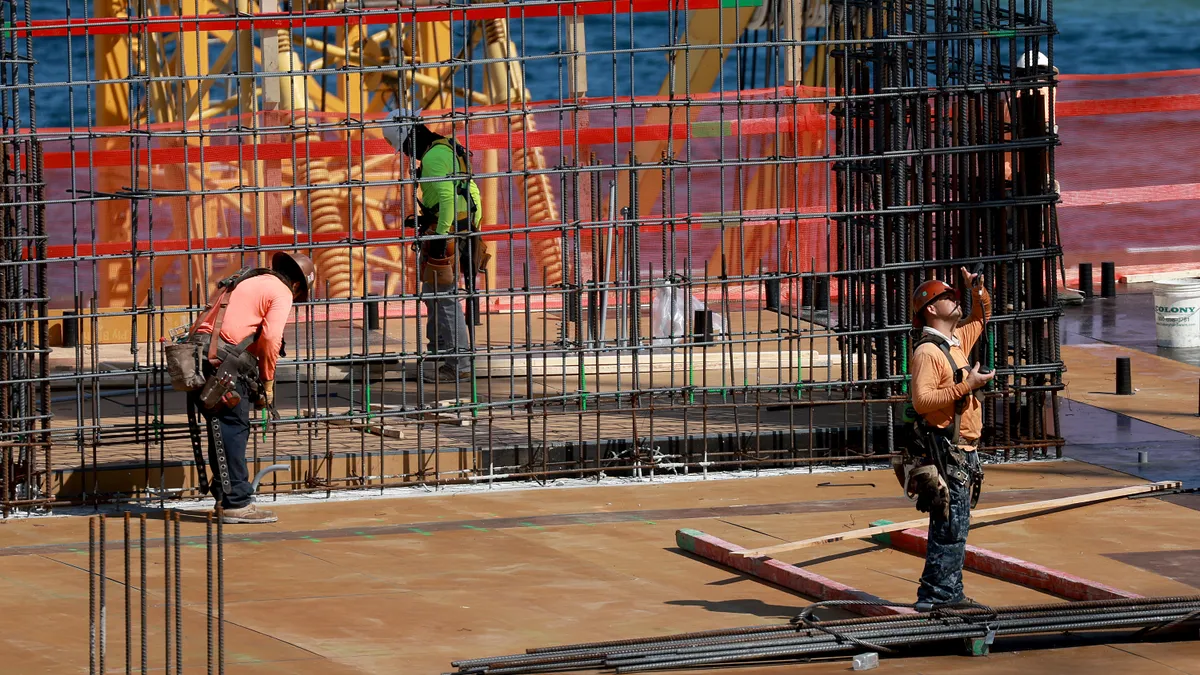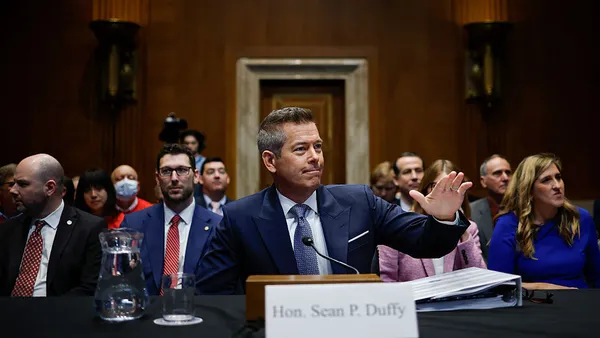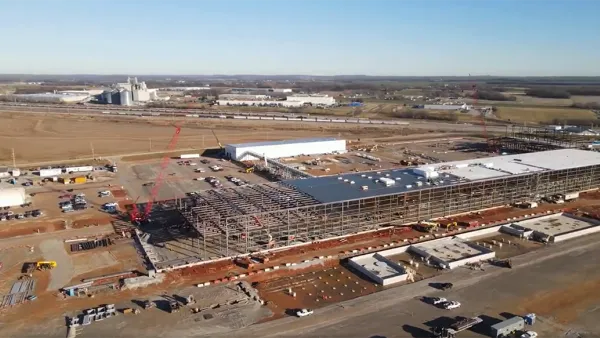Dive Brief:
- The Miami-Dade Board of County Commissioners in Florida delayed a vote this week on a municipal heat standard for outdoor workers.
- The potential rule would protect workers, largely in construction and agriculture, by guaranteeing heat safety protections on the job including water, shade and rest breaks. The board deferred the decision until March to leave time for further debate.
- The standard would create and define outdoor employee rights, require companies to develop a mandatory heat exposure program and set penalties for violations, the largest of which would carry a $3,000 fine.
Dive Insight:
WeCount!, a nonprofit organization in South Florida advocating for immigrant workers, backed the adoption of the standard. The group’s ¡Qué Calor! campaign sought to win protections for outdoor workers in the region.
“Today, our Miami-Dade Commission delayed a historic vote that would have guaranteed basic human rights for outdoor workers, like access to clean water and the right to a 10-minute rest break to drink that water under shade,” Oscar Londoño, co-executive director of We Count! said in a statement shared with Construction Dive following the announcement of the delay.
Opponents of the bill, including Commissioner Danielle Cohen Higgins, decried the standard. She called it “an overreaching and egregious heat sanction on two industries,” CBS News reported.
Nelson Stabile, president of the Builders Association of South Florida, told CBS News he opposed the bill because he found the enforcement and fines too egregious but supported “awareness, education, rest, water, shade” for outdoor workers. Stabile reportedly said a heat standard should come from the state or federal level.
Heat safety is of great importance in a city like Miami, which saw its hottest year on record this year, and logged the hottest day on Earth since at least 1979, according to research cited by the bill.
Existing standards
Currently, the U.S. has no official federal heat standard — though OSHA has announced the intent to develop one. An initial comment period for the standard closed in January 2022. The timeline for developing a standard is long, however, and for now, the agency merely recommends guidelines for protecting workers.
The agency issued a national emphasis program in 2022, which stands for three years. The NEP reinforces the “Water. Rest. Shade.” credo, while focusing on vulnerable workers through coordination with the Department of Labor’s Wage and Hour Division, which sends inspectors to aid with OSHA’s efforts on jobsites.
Nonetheless, a NEP is not a standard, which would have specific, enforceable guidelines that could result in penalties for employers who fail to comply.
Some states have their own rules, however. Both California and Washington have an outdoor exposure rule for protecting workers from heat, while Minnesota has a standard applying to indoor workplaces.
A battle over similar laws was fought this summer in the Lone Star state, where a bill signed by Texas Gov. Gregg Abbott nullified several city ordinances, including some mandating water breaks for construction workers. Abbott and supporters claimed the bill removed varied and cumbersome regulations, but opponents said the law puts workers in danger.
In September, a state district judge ruled Abbott’s law unconstitutional, but the state attorney general appealed the ruling, meaning the law went into effect.













